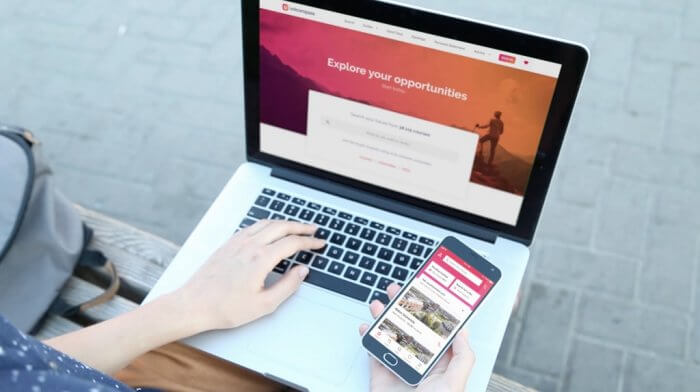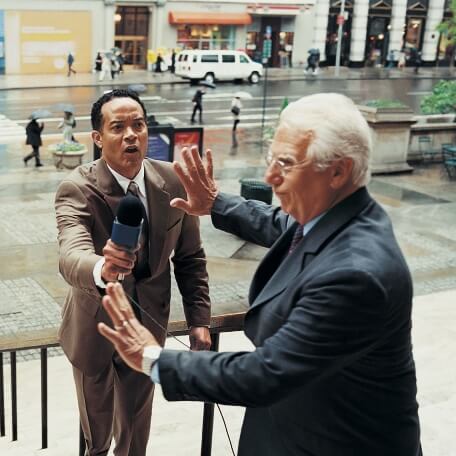UCAS is lacklustre, says University Compare founder Owen O'Neill. This is how he thinks students should find higher education opportunities.
University Compare: Owen O'Neill's Alternative To UCAS
UCAS is lacklustre, says University Compare founder Owen O'Neill. This is how he thinks students should find higher education opportunities.

Owen O’Neill, founder and CEO of University Compare, a website connecting students with their preferred universities, talks funding, launching too late and meeting job candidates in coffee shops.
1. What’s the business in a nutshell?
We’re a cross-platform higher education comparison service that helps universities and students connect. We put the power back into the students’ hands and offer a money supermarket comparison-style twist to choosing a university and degree course.
Whether that be understanding what you may earn as a graduate or future job prospects, we’re able to help you decide.
2. Why did you start it?
I applied to multiple universities and found the application process incredibly daunting, there was little guidance or advice available and we’re aiming to fix that problem. When I applied to university, there was one resource, UCAS — it was very lacklustre then and still is now.
We differentiate ourselves by offering an app, simple filtering metrics along with live video content and student reviews.
3. How did the business develop?
I started coding from my dorm bedroom. We’re very much a university-led start-up and have since raised multiple rounds of funding which has allowed the business to grow. We’ve just finalised our latest funding round, raising £250,000 from 175 investors.
This is our next step before we aim to mass-scale our operations. It takes time to find the right team members and the right user experience, but we’re finally getting there.

University Compare aims to provide students with easier access to their first choices
4. Tell us about market conditions.
Market conditions haven’t been the best, it’s a tough sell and can be tough to pitch as universities are very traditional. They want change but stifle innovation, so it becomes an uphill struggle, fighting the nay-sayers while paying close to attention to the staff who want something fresh in their inventory.
Overall, the first year was hard to enter, finding the key decision makers to target and perfecting our pitch. Four years on and we’re still fine-tuning things, but we’ve found a great way to capture market attention.
5. What’s been the biggest challenge?
We have a catch-22 in this industry, if we have no students, we have no universities and vice versa. We’ve spent the last 12-months focusing on product, product. We have worked very hard to make the best product on the market — and now, our efforts are being rewarded.
Universities have started listening and they are flocking to us faster than ever.
6. What has been your biggest mistake?
Being afraid to release our first product. It took me six months longer to launch than intended because I was worried about the feedback, when in fact this was what I should have done earlier. Moving faster gives you the opportunity to adapt sooner, learn more and create something that people will truly love.
7. What major bumps in the road have you had and how did you overcome them?
Increasing student retention is always a challenge and something we’re always looking to improve. We started off retaining 1 in 8 users through our service, and now we’re comfortably retaining 1 in 3. We believe we’ll be retaining 80% of all users very soon.
This comes down to the strength of our product, feedback from clients and users, as well as listening with our ears very open.

The website is cross-platform and designed for ease of use
8. What sets your business apart from the rest and how have you nurtured this point of difference?
We have always been a cross-platform, first with the website, but now four out of five of our developers are strictly mobile first. Our app now takes a stronger priority, and we’re moving to a mobile-first company, with mobile usage, and the app forms the pivotal role in how we run the business.
Our market is 17-21 year-olds - if that’s your market and you’re not mobile first, I’d question who the decision maker is.
9. How do you attract and retain good people?
Attracting staff is easy, attracting the right staff is hard. I like to meet candidates in a coffee shop for a very informal and relaxed meeting. We chat about all things, not just the job in hand as being a part of a start-up is a mentality, and you need to have an entrepreneurial spirit and approach.
We work out if they’re a good fit, offer them 1-2 hour(s) of work and see if they’re then able to do the job. They need to be fun, outgoing and get on with everyone in the office as more often than not the whole team has to pull together to get the job done.
10. What's your best advice to others
Jump first, look later. Managing the business, clients, sales — everything you’re doing while you’re starting out is just one test after another and you need to try them all.
The likelihood is you’ll have a number of failures along the way but it’s about having the perseverance to continue rising to the challenge and knowing that failing is just a way to find out what doesn’t work.
We’ve made a lot of mistakes, but we’ve also made a few right moves that are disrupting the industry. Those right moves would never have happened without being pro-active in our decision making, and if we’d been afraid of failure.
Thanks for signing up to Minutehack alerts.
Brilliant editorials heading your way soon.
Okay, Thanks!

